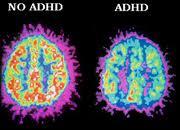Children with ADHD likely to develop substance abuse problems

Overview
Originally Published: 02/18/2011
Post Date: 02/19/2011
by Steve S. Lee
Attachment Files
Article - Children with ADHD likely to develop substance abuse problems
Summary/Abstract
Children with attention-deficit/hyperactivity disorder are two to three times more likely than children without the disorder to develop serious substance abuse problems in adolescence and adulthood, according to a new study.
Content
Children with attention-deficit/hyperactivity disorder are two to three times more likely than children without the disorder to develop serious substance abuse problems in adolescence and adulthood, according to a new study. “This greater risk for children with ADHD applies to boys and girls, it applies across race and ethnicity — the findings were very consistent,” Steve S. Lee, a UCLA assistant professor of psychology and researcher of the study, said in a press release. “The greater risk for developing significant substance problems in adolescence and adulthood applies across substances, including nicotine, alcohol, marijuana, cocaine and other drugs.” Lee and colleagues analyzed 27 long-term studies that followed approximately 4,100 children with ADHD and 6,800 children without ADHD into adolescence and young adulthood; some children were followed for more than 10 years. The researchers combined and analyzed all of the published studies and found that children with ADHD were at greater risk for serious problems such as addiction, abuse and trying to quit but being unable to, Lee said. “Any single study can be spurious, but our review of more than 2 dozen carefully designed studies provides a compelling analysis,” Lee said. According to the release, the research by UCLA psychologists and colleagues at the University of South Carolina is the first large-scale comprehensive analysis on this issue and was published online in Clinical Psychology Review. Approximately 5% to 10% of US children have ADHD, Lee said. As children with ADHD enter adolescence and adulthood, they generally fall into three groups of roughly equal size: one-third will have significant problems in school and socially; one-third will have moderate impairment; and one-third will do reasonably well or have only mild impairment. Parents should monitor their children, said Lee, who noted that early intervention with a mental health professional is helpful. A diagnosis of ADHD must be made by a psychologist or psychiatrist and not by a parent or teacher.





